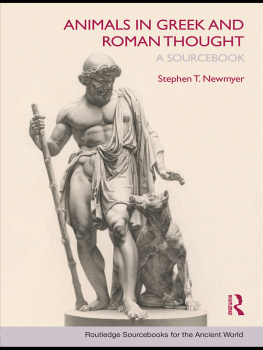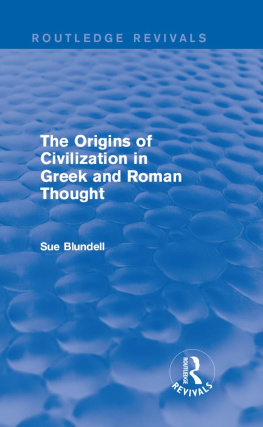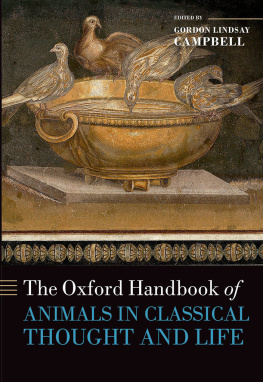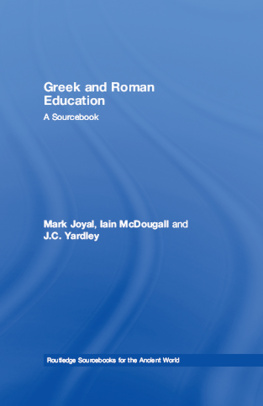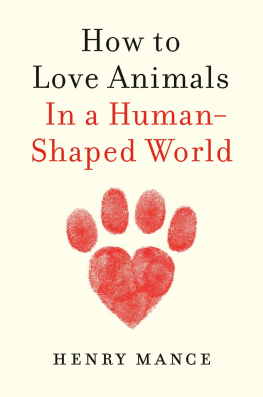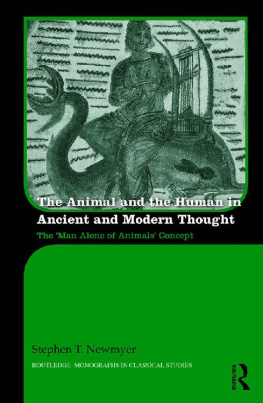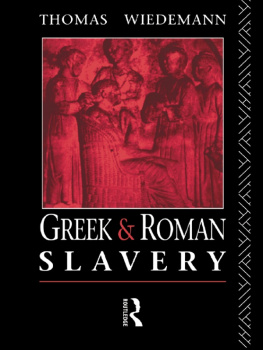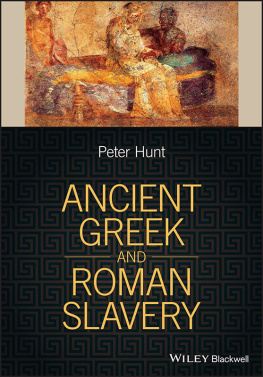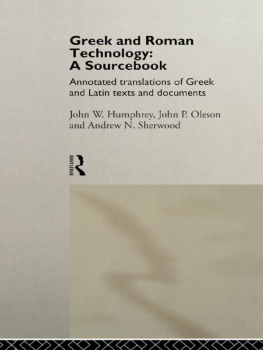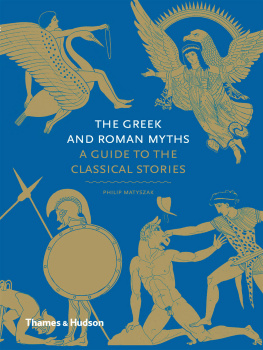ANIMALS IN GREEK AND ROMAN THOUGHT: A SOURCEBOOK
Although reasoned discourse on humananimal relations is often considered a late twentieth-century phenomenon, ethical debate over animals and how humans should treat them can be traced back to the philosophers and literati of the classical world. From Stoic assertions that humans owe nothing to animals that are intellectually foreign to them, to Plutarchs impassioned arguments for animals as sentient and rational beings, it is clear that modern debate owes much to Greco-Roman thought.
Animals in Greek and Roman Thought brings together new translations of classical passages which contributed to ancient debate on the nature of animals and their relationship to human beings. The selections chosen come primarily from philosophical and natural historical works, as well as religious, poetic and biographical works. The questions discussed include: Do animals differ from humans intellectually? Were animals created for the use of humankind? Should animals be used for food, sport, or sacrifice? Can animals be our friends?
The selections are arranged thematically and, within themes, chronologically. A commentary precedes each excerpt, transliterations of Greek and Latin technical terms are provided, and each entry includes bibliographic suggestions for further reading.
Stephen T. Newmyer is Professor of Classics and Chair of the Department of Classics at Duquesne University in Pittsburgh. He has published widely on humananimal relations in classical thought, and is author of Animals, Rights and Reason in Plutarch and Modern Ethics (Routledge, 2006).
Routledge Sourcebooks for the Ancient World
Readings in Late Antiquity:Second Edition, Michael Maas
Greek and Roman Education, Mark Joyal, J.C. Yardley and Iain McDougall
The Republican Roman Army, Michael M. Sage
The Story of Athens, Phillip Harding
Roman Social History, Tim Parkin and Arthur Pomeroy
Death in Ancient Rome, Valerie Hope
Ancient Rome, Matthew Dillon and Lynda Garland
Sexuality in Greek and Roman Literature, Marguerite Johnson and Terry Ryan
Athenian Political Oratory, David Phillips
Pompeii, Alison E. Cooley and M.G.L. Cooley
Greek Science of the Hellenistic Era, Georgia Irby-Massie and Paul Keyser
Women and Law in the Roman Empire, Judith Evans Grubbs
Warfare in Ancient Greece, Michael M. Sage
The Government of the Roman Empire, Barbara Levick
Pagans and Christians in Late Antiquity, A.D. Lee
Ancient Greece:Second Edition, Matthew Dillon and Lynda Garland
Ancient Greek Laws, Ilias Arnaoutoglou
Trials from Classical Athens, Christopher Carey
Greek and Roman Technology, John Humphrey, John Oleson and Andrew Sherwood
Roman Italy 388 BCAD 200, Kathryn Lomas
The Roman Army 31 BCAD 337, Brian Campbell
The Roman Household, Jane F. Gardner and Thomas Wiedemann
Athenian Politics, G.R. Stanton
Greek and Roman Slavery, Thomas Wiedemann
Forthcoming:
Ancient Greece:Third Edition, Matthew Dillon and Lynda Garland
Ancient City of Rome, Christopher Smith, J.C.N. Coulston, Hazel Dodge
Women of the Ancient Near East, Mark Chavalas
Greek Religion, Emma Stafford and Karen Stears
ANIMALS IN GREEK AND ROMAN THOUGHT
A sourcebook
Stephen T. Newmyer

LONDON AND NEW YORK
First published 2011
by Routledge
2 Park Square, Milton Park, Abingdon, Oxon OX14 4RN
Simultaneously published in the USA and Canada
by Routledge
270 Madison Ave, New York, NY 10016
Routledge is an imprint of the Taylor & Francis Group, an informa business
This edition published in the Taylor & Francis e-Library, 2011.
To purchase your own copy of this or any of Taylor & Francis or Routledges collection of thousands of eBooks please go to www.eBookstore.tandf.co.uk.
2011 Stephen T. Newmyer
The right of Stephen T. Newmyer to be identified as author of this work has been asserted by him in accordance with sections 77 and 78 of the Copyright, Designs and Patents Act 1988.
All rights reserved. No part of this book may be reprinted or reproduced or utilized in any form or by any electronic, mechanical, or other means, now known or hereafter invented, including photocopying and recording, or in any information storage or retrieval system, without permission in writing from the publishers.
British Library Cataloguing in Publication Data
A catalogue record for this book is available from the British Library
Library of Congress Cataloguing in Publication Data
Newmyer, Stephen Thomas.
Animals in Greek and Roman thought : a sourcebook /
by Stephen T. Newmyer.
p. cm.
Includes bibliographical references.
1. AnimalsGreeceHistory. 2. AnimalsRomeHistory.
3. Animal rightsHistory. I. Title.
QL21.G8N49 2010
179'.3dc22
2010019804
ISBN 0-203-83915-3 Master e-book ISBN
ISBN13: 9780415773348 (hbk)
ISBN13: 9780415773355 (pbk)
ISBN13: 9780203839157 (ebk)
FOR RAE,
who helped me come back.
CONTENTS
PREFACE
Since the rebirth of interest in the relationship between human and non-human animals that coincided, at least in the United States, with the flowering of such social causes as the Civil Rights Movement and Womens Liberation, an extraordinarily rich body of literature has been produced covering virtually every aspect of humananimal interaction. Philosophers, zoologists, environmentalists, and animal activists of every description have argued passionately that non-humans share the faculty of reason that has for millennia been judged by many thinkers to be unique to human beings, that non-human animals therefore deserve to be included in the moral universe of their human counterparts, and that human treatment of animals should change in light of our kinship with non-human species. Others have argued with equal conviction that humans owe nothing to non-humans on the grounds that they have so little in common with human beings as to fall outside the bounds of human moral consideration.
For readers with an interest in the historical antecedents of modern debates on animal issues, a number of anthologies of what their compilers term the classic texts have appeared in recent years. Unfortunately, the term classics is frequently applied in anthologized collections to writings dating predominantly from the nineteenth and early twentieth centuries, with perhaps an occasional excerpt from Descartes and, in some instances, an offering from Thomas Aquinas or even the Old Testament. Greek and Roman classics are either omitted entirely or drastically underrepresented, despite the fact that virtually every subject encompassed in post-classical thought on humananimal relations was treated already in Greco-Roman authors, and that the Aristotelian and Stoic formulations of these arguments were instrumental in shaping much of subsequent thought on the nature of the animal estate.

